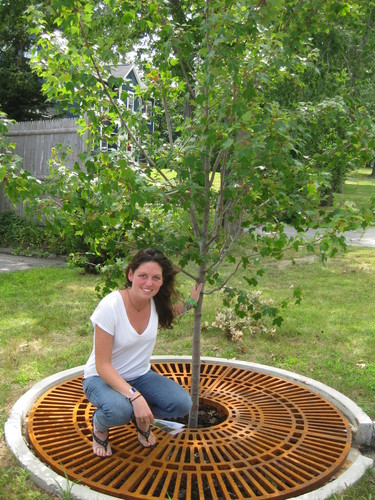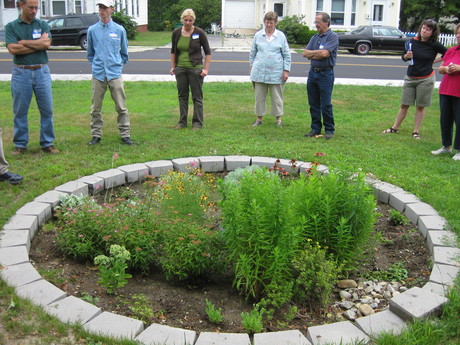The Wrack
The Wrack is the Wells Reserve blog, our collective logbook on the web.
The Wrack is the Wells Reserve blog, our collective logbook on the web.
 I had the chance to go to the annual Low Impact Development Field Trip this past Tuesday to do some research on how to make a difference in my neighborhood. The purpose of the trip was to showcase best management practices around the Acton Wakefield Watershed and Portsmouth, NH.
I had the chance to go to the annual Low Impact Development Field Trip this past Tuesday to do some research on how to make a difference in my neighborhood. The purpose of the trip was to showcase best management practices around the Acton Wakefield Watershed and Portsmouth, NH.
Municipal staff, boards, regional planners, engineers, watershed groups, and community memebers all attened the field trip this year starting at the Acton Wakefield Watersheds Alliance's office in Union, New Hampshire. From there, we had a tour of best management practices around the area that are designed to reduce the loads of sediment and phosphorus into main waterbodies. We met a group of hard working teens using their summer to help others by volunteering labor hours to help build infiltration steps, pervious walkways, and dripline trenches for homeowners.
 The next stop was to the School Street School in Rochester, NH. This school has struggled with major flooding, taking playtime and recess away from the kids during the school year. To solve the problem, the school installed multilple types of stormwater management practices such as rain gardens and pervious pavement. All the teachers noted that there has been a huge difference, with not one flooded playground the entire year.
The next stop was to the School Street School in Rochester, NH. This school has struggled with major flooding, taking playtime and recess away from the kids during the school year. To solve the problem, the school installed multilple types of stormwater management practices such as rain gardens and pervious pavement. All the teachers noted that there has been a huge difference, with not one flooded playground the entire year.
Our final stop was to Portsmouth, NH to look at stormwater management on a community level. Box trees and neighborhood gardens have been put in to slow runoff and sediment loading. The box tree was my personal favorite. It is virtually a storm drain but with a large tree in it. The tree roots soak up the majority of the water that runs off of the streets and filters the remaining water before it enters our water system. The rain gardens are also an easy solution that anyone can do at their home, not to mention they're beautiful to look at!